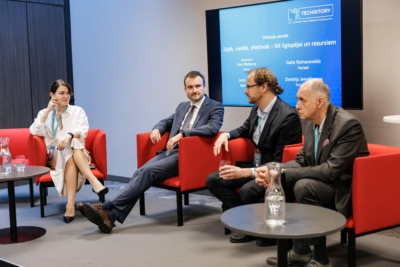DESI – the Digital Economy and Society Index – is a composite index that summarises relevant indicators on Europe’s digital performance. The report, which is published every year by the European Commission, measures and evaluates the progress of EU member states towards a digital economy and society.

What is Digital Economy and Society Index (DESI) and how is Latvia scoring at it?
September 12, 2019
Forum newsIn 2019, countries that scored the highest ratings and were leading the digitization processes in Europe, were Finland, Sweden, the Netherlands, and Denmark. Latvia, in the meantime, ranked 17th out of 28 EU Member states, showing especially high results in dimensions like Digital public services and Connectivity.
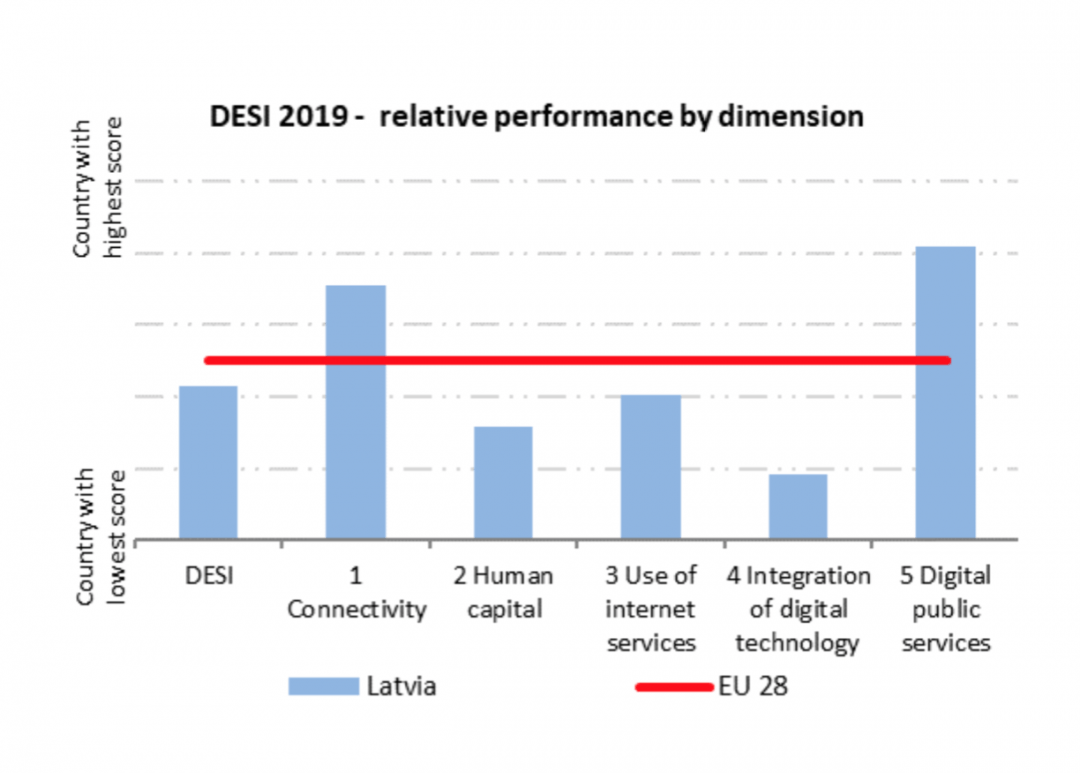
Besides Digital public services and Connectivity, there are other indicators that are used to evaluate the country’s digital competitiveness – let’s take a look at how Latvia is doing at each of them.
Connectivity
The Connectivity indicator measures the deployment of broadband infrastructure and its quality. Access to fast and ultrafast broadband networks is a necessary condition for competitiveness at this dimension.
According to the report, advanced coverage of ultrafast broadband is one of Latvia’s main strengths – with 90% coverage, Latvia ranks 6th within all the EU member states. The country is also among the EU’s front runners when it comes to deployment of very high-speed infrastructure and readiness for 5G technology.
The readiness for 5G infrastructure is, in fact, where Latvia is performing exceptionally well, ranking right behind Finland and Italy, and sharing the third place with Germany, Denmark, and France.

Latvian authorities are working on a national 5G roadmap, which shows the country’s interest in the deployment of the technology. Atop of that, Latvia has a nearly 100% coverage of 4G network – above the EU average – which lays a strong foundation for early 5G deployment.
Human Capital
The Human Capital indicator measures the skills needed to take advantage of the possibilities offered by digital. In this dimension, Latvia ranks 21st and below the EU average, showing no relevant progress in the last few years.
Although the overall number of Internet users in Latvia is growing, basic and advanced digital skills levels remain below the EU average. In 2019, just 48% of Latvians had basic digital skills (compared to the 57% EU average) and 27% had more advanced digital skills (compared to the 31% EU average).
There is a slight increase in the percentage of ICT graduates since 2017, however, the proportion of ITC specialists in Latvia’s workforce still remains low when compared to the rest of Europe (2.3% vs 3.7%). Unfortunately, so does the proportion of female ICT specialists – just 1% of Latvian ITC specialists are women, which is below the 1.4% EU average.
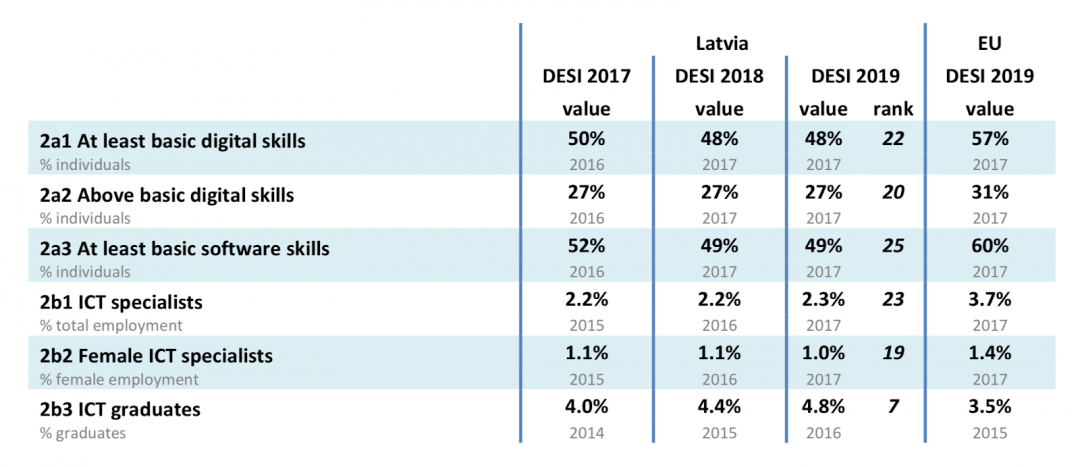
Use of Internet Services
The Use of Internet Services pays attention to online activities that Internet users engage in, such as the consumption of online content (videos, music, games, etc.), video calls, as well as online shopping and banking.
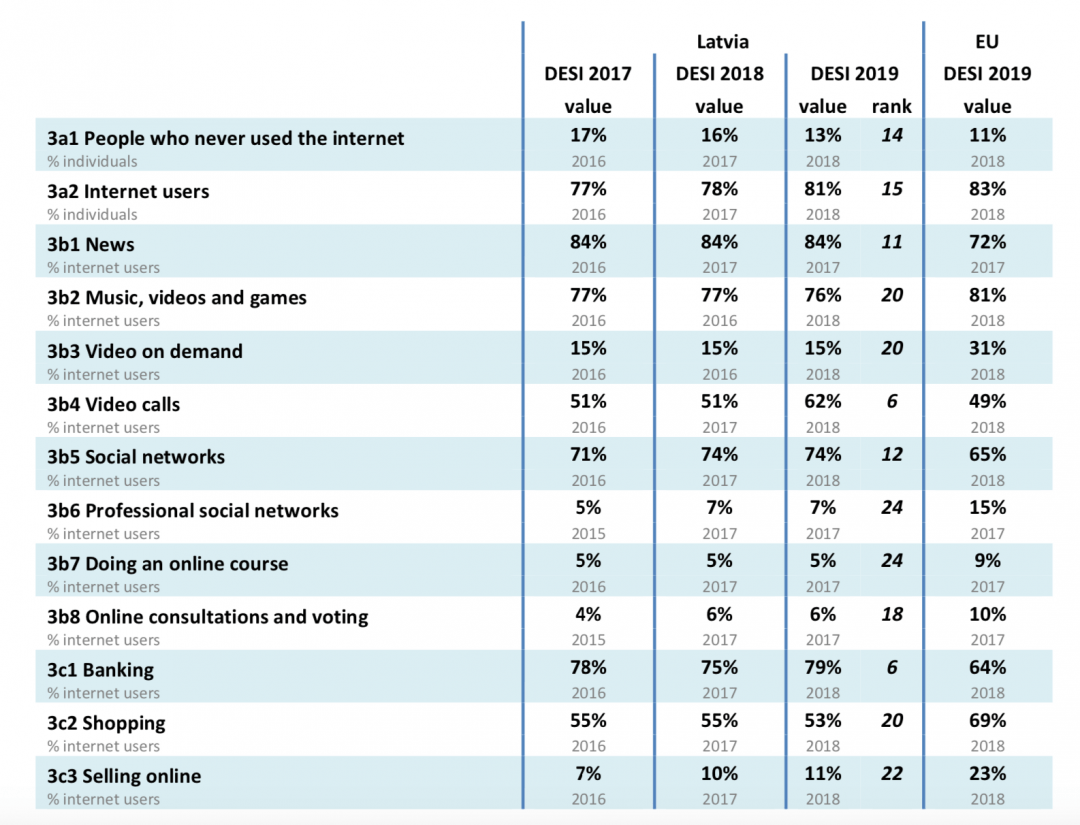
The report indicates that Latvians have learned to master the most essential skills – to make video calls, read the news, and use online banking services. However, when it comes to engaging in other online activities, such as online shopping, video streaming, or the use of professional social networks, Latvia falls behind other European countries.
Integration of Digital Technology
The Integration of Digital Technology dimension measures the digitization of businesses and e-commerce. This indication is important, as digital technologies provide businesses with possibilities to enhance efficiency, reduce costs, and improve customer engagement. The Internet also offers access to global markets and thus, higher potential for growth.
Unfortunately, Latvia doesn’t seem to use these opportunities and in this dimension ranks 24th out of 28 countries. Over the years, the country hasn’t made any significant progress in this dimension, and some indicators have even regressed. For example, compared to 2017, there are fewer small businesses that sell online, and the overall e-commerce turnover has decreased by nearly 50%.
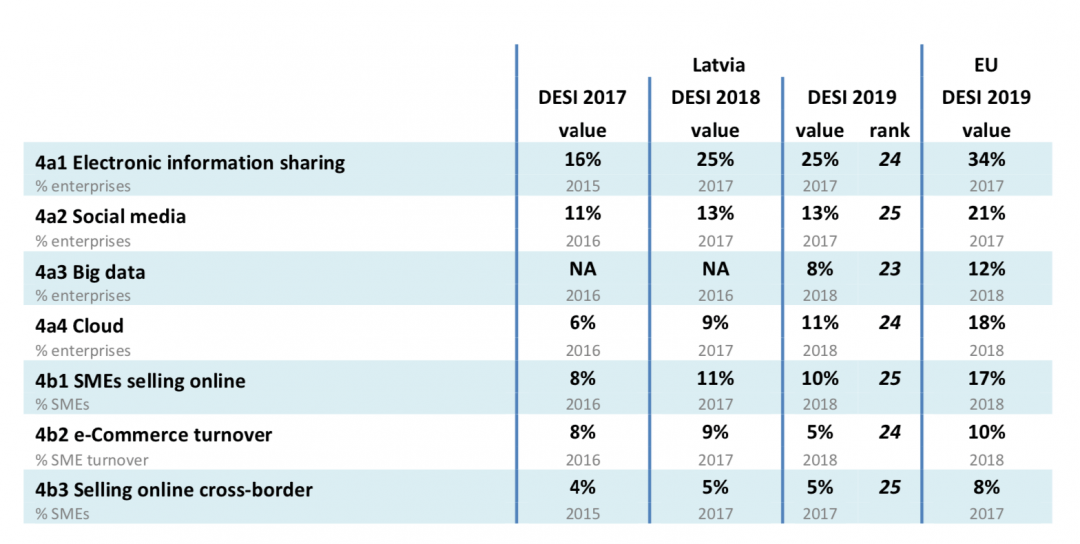
As the report suggests, ”to boost the digital transformation of the Latvian economy, it is important to further raise awareness of the importance of digitization in SMEs”. To do that, a new project is already on the roadmap – the Interreg SKILLS +project is expected to provide entrepreneurs with training and encourage SMEs to develop digital strategies to improve productivity and competitiveness.
Digital Public Services
The Digital Public Services dimension measures the digitization of public services, focusing on eGovernment and eHealth. It is expected that the modernization of public services could lead to efficiency gains for the public administration, citizens, and businesses.
This is one of the dimensions where Latvia performs above the EU average, ranking 7th among all the EU member states. As the report states, the significant improvement in the last two years is mainly driven by:
- increased use of e-government – a growing number of Latvians (81% of total Internet users) use e-government services
- the availability of pre-filled forms, which refers to the amount of data that is pre-filled in public services’ online forms
- the availability of open data, which is an indicator that measures to what extent countries have an Open Data policy in place
Another noteworthy initiative that has contributed to a high score in this dimension is Latvia’s centralized national information e-health system, which provides the patient’s electronic health care record for everyone living in the country. Since 2018, e-prescriptions and sick-leave certificates are issued only electronically.
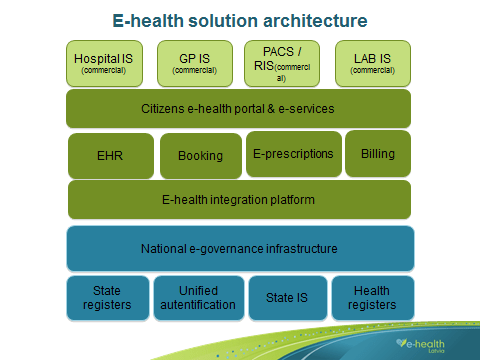
Source: vm.gov.lv
Concluding remarks
In two out of five dimensions, Latvia ranks above the EU average – not great, not terrible. The best results are shown in the Digital Public Services dimension, followed by Connectivity. In the meantime, results in Human Capital, the Use of Internet Services, and Integration of Digital Technology show unsatisfactory low results, way below the EU average.
Some of the solutions to this challenge might be an introduction of more activities that raise awareness of the relevance of digital skills in the labor market and SMEs. The country should also come up with a plan to encourage enterprises to invest in these skills, as businesses themselves will benefit from them in the future. And on top of that, there should be a further promotion of cross-border partnerships – that would help countries like Latvia keep up with the overall EU’s progress towards the digital economy and society.
Download the full report ”Digital Economy and Society Index (DESI) – 2019 Country Report, Latvia”.

